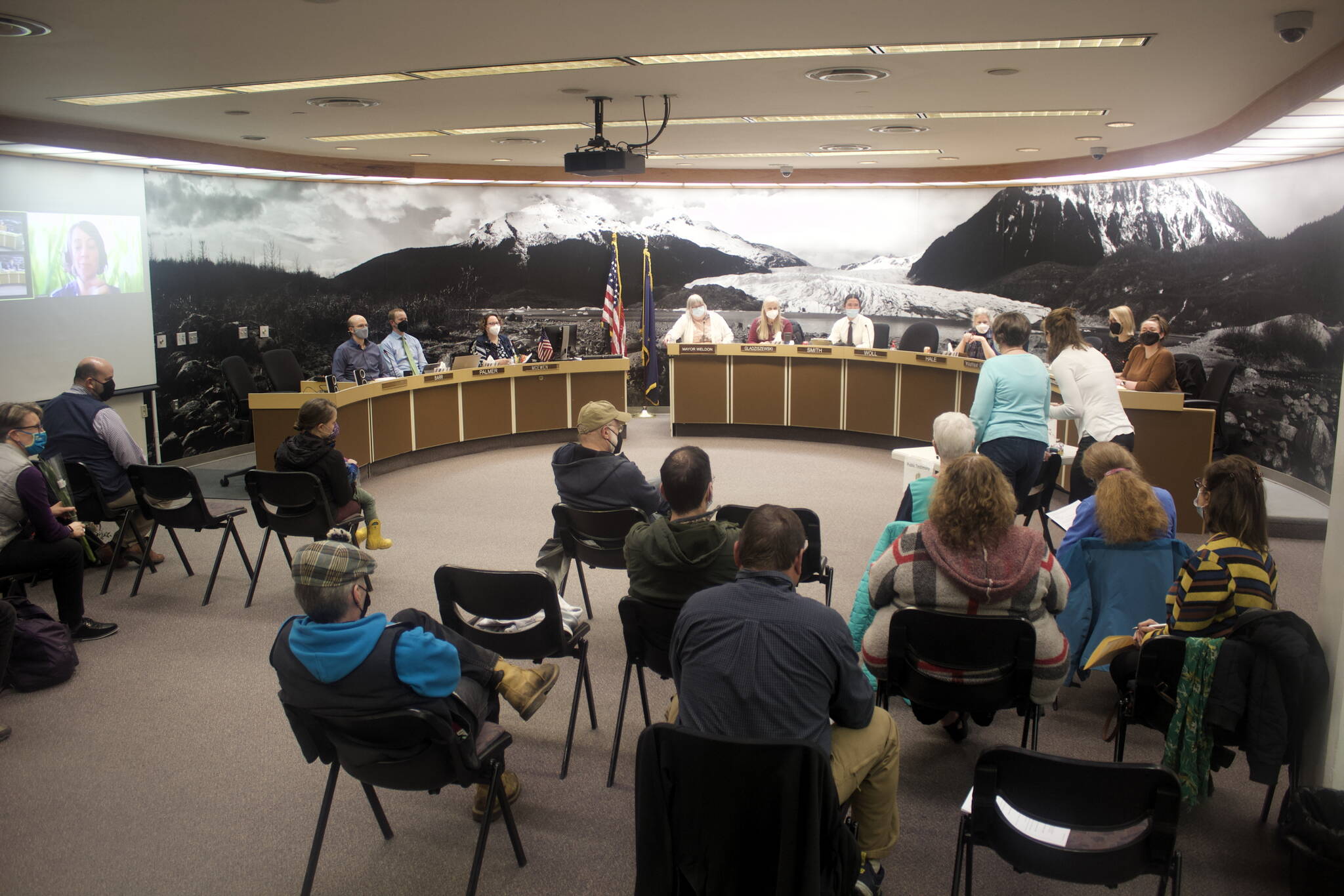When it came to how Juneau’s leaders spend more than $500 million near year, the public didn’t have much to say.
A three-hour City and Borough of Juneau Assembly meeting Monday largely devoted to seeking public comment about the city’s proposed fiscal 2023 budget saw only a handful of people testify, nearly all directly involved with relatively small items, such as somebody wanting about $50,000 to help resettle Afghan refugees locally.
That meant the only “watchdog” comments came from Aaron Spratt, a failed school board candidate in 2021 and frequent testifier at public meetings. He spoke for his allocated two minutes on three agenda items via Zoom, twice bringing up his oft-expressed frustration with mandatory face masks in schools – suggesting the Assembly “make a statement” by altering district funding — and once about what he called vast and vaguely explained spending that is “so disconnected from reality from what taxpayers have to pay.”
“I wish the public was more involved,” Spratt said by way of apology before beginning his final testimony.
But while the Assembly gave a unanimous OK with no discussion to virtually all of the spending items for next year, it’s hardly their last word or the final step in a budget-drafting process that must be legally completed by June 15. The proposed $431 million city operating budget, $87 million Juneau School District budget and setting of the property tax mill rate all were returned to the Assembly’s Finance Committee for further review and modifications following the public hearing that is legally mandated before May 1.
Also, while few line-item specifics were discussed Monday, the entire proposed spending plan was released publicly April 5. The unveiling highlighted the April 25 public testimony meeting, but also noted the weekly Finance Committee meetings and on April 7 the city published its first-ever do-it-yourself budget balancing simulator that has received dozens of user-submitted spending plans.
This week’s Finance Committee meeting at 5:30 p.m. Wednesday will review the budgets for Juneau International Airport, Bartlett Regional Hospital and Eaglecrest Ski Area. The budgets will also be affected by upcoming hearings of the school board and Alaska State Legislature.
A significant portion of Monday’s meeting also focused on approving funding for items already approved by the Assembly for the current year or in anticipation of future inclusion. Those include $6.3 million for a new upgraded city hall, $5 million for the Affordable Housing Fund, $3
million for improvements to Augustus Brown Pool, and $1.5 million for information technology infrastructure upgrades.
Unlike the still-under-review municipal and district budget plans for next year, Assembly members didn’t rush to approve actual funding for all of the specific projects. Approval of the allocation for an upgraded city hall, for instance, was postponed until Assembly’s June 13 meeting because of lingering uncertainties, not the least of which is if it will legally be a “new” facility as the agenda item stated or an upgrading of the current municipal building.
“This is a large amount of money, Assembly member Maria Gladziszewski added. “We haven’t put together the financing package for this project.”
Similarly, approval of funding for the information technology improvements was postponed until June 13. Also held until the Assembly’s May 16 meeting was $1.3 million for additional costs for the construction of the Southeast Community Services Center.
But a request by Assembly member Greg Smith to postpone approval of $500,000 as the initial payment toward $12 million for upgraded police radios with encryption capability, saying he “would just like to get more information and have a better understanding of the project,” was withdrawn after other members raised objections. Assembly member Wade Bryson said the issue has been much-discussed for years and further delays means emergency officials will continue to be forced to use radios that can be monitored by criminal suspects.
“This was the most requested item when I was running for office in 2018, not just from the Juneau Police Department, but from the fire department because it’s the same system,” he said.
• Contact reporter Mark Sabbatini at mark.sabbatini@juneauempire.com.

